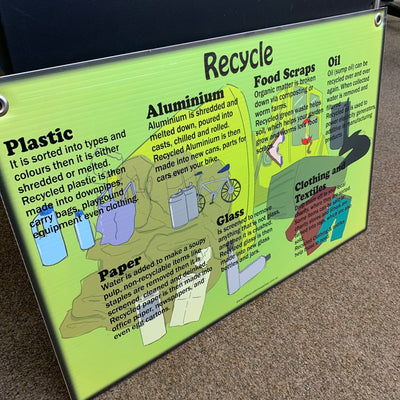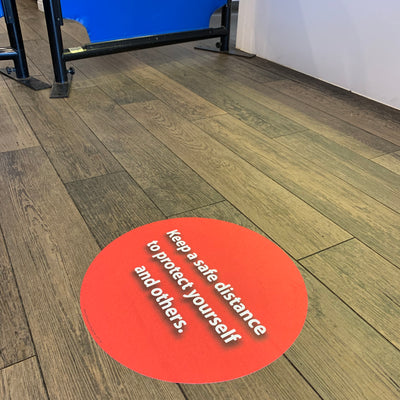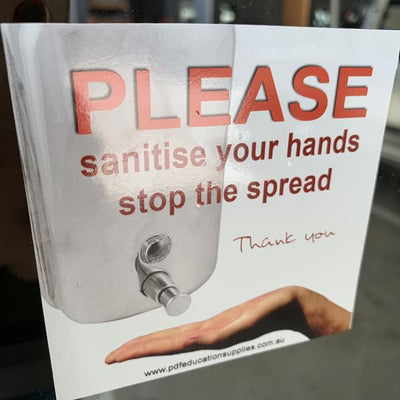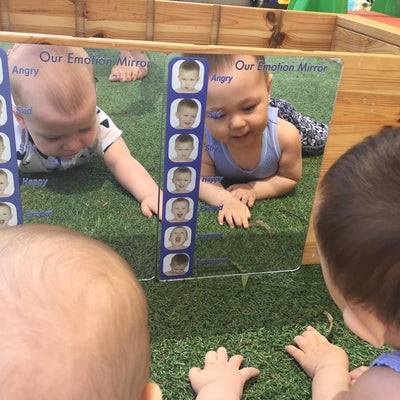Recycling in Early Education
Why we need to encourage recycling in a child's early years.
The skills children learn from recycling will create a sustainable world for them and future generations to live in. They will develop a greater appreciation for the way things work, and a better understanding of our precious ecosystem.
How to start
Start this learning in the early years of a child's life. If a child is old enough to clear away their own mess and put something in the bin, they're old enough to learn about recycling.
Buy the right bin, and label it so it is a visual reminder of what items go in it.
Encourage children to donate cloths and toys to charity stores
-
Oct 09, 2020
SOCIAL DISTANCING
Steps for social distancing in the workplace include:
stop shaking hands to greet others
consider cancelling non-essential meetings. If needed, hold meetings via video conferencing or phone call
put off large meetings to a later date
hold essential meetings outside in the open air if possible
promote good hand, sneeze and cough hygiene
provide alcohol-based hand rub for all staff
eat lunch at your desk or outside rather than in the lunch room
regularly clean and disinfect surfaces that many people touch
open windows or adjust air conditioning for more ventilation
limit food handling and sharing of food in the workplace
avoid non-essential travel
promote strict hygiene among food preparation (canteen) staff and their close contacts
Businesses must do everything they can for Social Distancing
-
Apr 03, 2020
Sanitise hands on arrival
We are all aware of the current Coronavirus and with this in mind it is more important than ever that we follow correct hygiene procedures. Clean hands has always and will always be one of our best forms of defence against all germs.
PDF Education Supplies is committed to the healthy and safety of all, hence why we have added this vinyl sticker to our range it will act as a reminder to all that you require them to sanitise their hands prior to entry.
Germs from unwashed hands can be transferred to other objects, like handrails, table tops, or toys, and then transferred to another person's hands.
-
Jan 31, 2020
Benefit of mirrors for children with Autism
Who's That in the Mirror? Autism and the Developing Sense of Self EXECUTIVE SUMMARY: A small, exploratory British study of preschoolers with either autism or Down syndrome and typically developing toddlers looked at how each group of children acted toward their reflections in a mirror. They looked for trends, both group trends (i.e., how do autistic children differ from their non-autistic developmental peers, represented in different ways by the Down syndrome group and the younger typically developing group, whose chronological age matched the developmental ages found for both developmentally-disabled groups), and within-group trends relating mirror behavior to performance on a test of mirror self-recognition (i.e., do they know that the person in the mirror is their own reflection). They found that although the autistic children did not differ from the younger, typically developing children in the amount of time spent looking at their own faces, but that they did spend...
-
Jan 14, 2020
Mirrors for Babies
Mirrors are a great way to help babies explore. They may even reach out to touch the “baby” in the mirror. Eventually, they will learn they are seeing their own face and start to recognize their reflection. While looking in the mirror with your baby, you can use this chance to help develop their vocabulary!
-
Nov 11, 2019
Encouraging Children to Stay Sun Smart
Who Needs Sun Protection? Every child and adult needs sun protection. Melanin is skin pigment found naturally in humans that may protect the skin from harmful UV rays. While the amount of melanin varies based on how light or dark a person's natural skin colour is, we all need to protect ourselves from excessive tanning or sunburns that cause skin damage. So here are some useful tips to use for yourself and children in your care: 1. Avoid the Strongest Rays of the Day Try to stay in the shade when the sun is at its strongest (usually from 10am to 4pm in the Southern hemisphere). If kids are in the sun during this time, apply and reapply SPF30 or higher sunscreen — even if they're just playing in the backyard. Most sun damage happens from exposure during day-to-day activities, not just from sun-based activities like visiting the beach....
-
Apr 03, 2019
Mirrors for Face painters
Face Painters mirror light weight shatterproof acrylic with safety round corners. This is a great addition to you kit as it is completely safe to use around children.
-
Nov 06, 2017
Recycling Stations PDF Education Supplies
Caring for the environment is an important aspect of everyday life. Everyone has to do their part to try to make this world a cleaner, healthier and more sustainable place. Recycling is an important aspect to achieve this. The younger the students are when they are introduced to the concept of recycling, the more likely it is that they will continue to do so when they grow up. By introducing recycling bins to your childcare /school environment, students will have to think about their waste management multiple times a day. It will make them realise that they can make good and bad environmental choices and decisions. Students identify items to recycle and which ones they can not be recycle. Recycling bins can be part of a lesson plan by letting the students put their waste in the correct bin. Use the compost created by the students to help the...
-
Aug 21, 2017
Team Work Poster
Great laminated poster to display in the staff room Element 4 Educators, co-ordinators and staff members work collaboratively and affirm, challenge, support and learn from each other to further develop their skills and to improve practice and relationships. Resource from www.pdfeducationsupplies.com.au
-
Oct 19, 2016
Bonds between educator's and children
Home is definitely the first school for children and without doubt the most important it is very closely followed by the bond and trust that children build with their educators a child’s “secondary attachment figure”
It is important that parents and educators work together for the best outcome for a child. PDF Education Supplies have made this laminated poster to display to let parents who make not think it is not appropriate for them to “tread on educators toes” know that you really do want them to be involved Laminated poster from www.pdfeducationsupplies.com.au
#bonds #childcare
-
Oct 07, 2016










